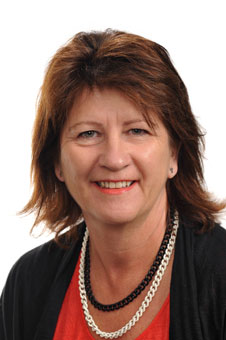 Monday 7 September 2015 4:04pm
Monday 7 September 2015 4:04pm
Associate Professor Barbara Galland
A comprehensive University of Otago-led study of data from 12 countries has found that children with sleep-disordered breathing (SDB), including snoring, are clearly associated with poorer academic performance.
Lead author, Associate Professor Barbara Galland, from the University's Department of Women's and Children's Health, says the study, just published in leading international journal Pediatrics, involved a meta-analysis of data from articles investigating the link between SDB and learning outcomes for school-age males and females in 12 countries around the world.
The researchers aimed to evaluate the strength of the relationships between SDB and achievement in core learning domains of literacy and numeracy skills, and science ratings and grades. They found that SDB and snoring in children was significantly associated with poorer progress in these areas, but not general school performance ratings overall.
“Few studies assessing core academic skills stated participants' performance were outside of the average range. However, our results do have implications for children not reaching their full academic potential,” Dr Galland and colleagues Dr Elizabeth Schaughency and Associate Professor Patrick Dawes wrote.
The study recommends that in light of the findings, screening for SDB should be included in paediatric and multidisciplinary assessments of children's learning difficulties, with appropriate medical follow-up.
The findings were in the small to medium range in terms of discrepancy, but nevertheless they serve to highlight this issue to parents, teachers, and clinicians,” she says.
Associate Professor Galland says children with SDB and who snore tend to have disturbed sleep and this in turn influences behaviour and attention-to-task, ultimately affecting learning.
She says there is not enough attention in New Zealand to SDB and snoring in children, as it is sometimes viewed by parents as humorous rather than a sign of a potential health problem.
“However, there could be enlarged tonsils or adenoids, obesity can be a factor, or potentially orthodontic problems – all of which can be addressed to varying degrees,” says Associate Professor Galland.
Research suggests that parents may not always discuss symptoms of childhood SDB, such as chronic snoring, with their children's physician.
“Therefore, parents, teachers, and health-care professionals and others who work with children need to be aware that SDB in children may contribute to academic difficulties some children face. Given the potential adverse consequences of SDB on children's health as well as their daytime learning and behaviour, it is important for parents and clinicians to recognize symptoms of SDB,” she says.
Associate Professor Galland adds that more research is needed, particularly to understand which children are most at risk for academic difficulties associated with SDB, the contributors to their learning difficulties, and how they can be helped. Ultimately, longer term follow up studies are needed that consider children's learning over time and whether their learning progress is improving or additional efforts are needed to address remaining learning needs.
For more information, contact:
Associate Professor Barbara Galland
Department of Women's and Children's Health
Dunedin School of Medicine
Tel: 03 470 9478
A list of Otago experts available for media comment is available elsewhere on this website.
Electronic addresses (including email accounts, instant messaging services, or telephone accounts) published on this page are for the sole purpose of contact with the individuals concerned, in their capacity as officers, employees or students of the University of Otago, or their respective organisation. Publication of any such electronic address is not to be taken as consent to receive unsolicited commercial electronic messages by the address holder.
